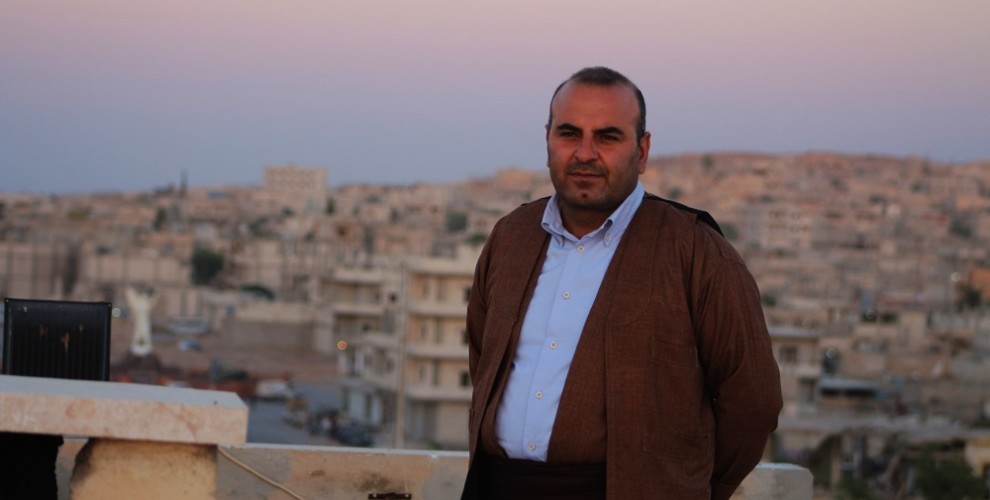Muslim: Rojava Revolution is inspired by Bakur's resistance
Because the 19th July Revolution was a decisive cornerstone for radical change, it became a melting pot of all different kinds of revolutions.
Because the 19th July Revolution was a decisive cornerstone for radical change, it became a melting pot of all different kinds of revolutions.

Co-chair of the Kobanê Canton Enwer Muslim answered the questions of the ANF regarding the Revolution of the 19th July. Muslim drew at the beginning of his statement the attention to the history of Syria and the injustice, oppression and force the regime exerted on the peoples of Syria.
As Muslim was talking about the era before the Ba'ath Party which ruled over Syria since the military putsch in 1963, he explained: "This chauvinistic mentality existed even long before the year 1963. Whoever dared to rise up, was arrested on the spot and rendered ineffective inside prison cells. After the Ba'ath Party took power, the pressures and oppressions increased particularly against the Kurdish community."
Muslim pointed out that the Ba'ath regime kept the unemployment in the Kurdish populated areas systematically at the highest rate and forced the people to emigrate to Syria's metropolises like Damascus, Aleppo, Homs and other suchlike cities. Muslim said: "Despite all the systematic repressive measures, elimination and starvation policies which the Ba'ath Party executed on the people, the Kurds of Rojava despite all odds always kept resisting as they became deeply influenced by the uprisings and revolutions taking place in Northern Kurdistan."
Co-chair of the Kobane Canton Enwer Muslim stated: "If you take a thorough look at the 19th July Revolution, you will see that this revolution has its roots in the 80s when the Kurdistan Freedom Movement set foot in Kobane."
Muslim took us also back to the 12 March uprising, which became an important ignition, too, and a source of courage, having the people in Kobanê make a decision in 2012 and stand up against the Ba'ath regime saying: "We do not accept you!"
Regarding the beginning of the Kobanê Revolution Muslim said: "The people of Kobanê do not accept any pressures on them. They love their land and their language, and the artificially created 'Arab Belt' walls were torn down in Kobanê."
Muslim emphasized the importance of defence and pointed out that self defence has become the pillar of the struggle against the dark force of ISIS. Muslim said: "After Kobanê's people freed their city from the Ba'ath regime, they focused on self defence. As a matter of fact, would they not be able to fend for themselves, and another power would simply fill the gap and enforce its reign over them in contrary case. And the new power would certainly not be inferior to the Ba'ath regime's atrocities whatsoever. For that reason every person started to protect their own squares and villages by themselves."
Muslim stated that the spirit of the 19th July Revolution came forth during the massive attacks of the ISIS gangs on Kobanê and the following unparalleled Resistance of Kobanê, which left the world speechless, had its roots in the 19th July Revolution and the Kurdistan Freedom Movement.
Talking about the services and works provided until now, Muslim explained: "The Ba'ath regime rendered the Kurdish areas vacuous in all terms you can think of. But after the 19th July Revolution many important steps have been made, on part of education, health service, construction work etc. The biggest change however happened in the people's perception, who now are administering themselves effectively. There are surely some gaps and hindrances. But Kobanê and whole of Rojava are engaged daily in unstoppable progress."